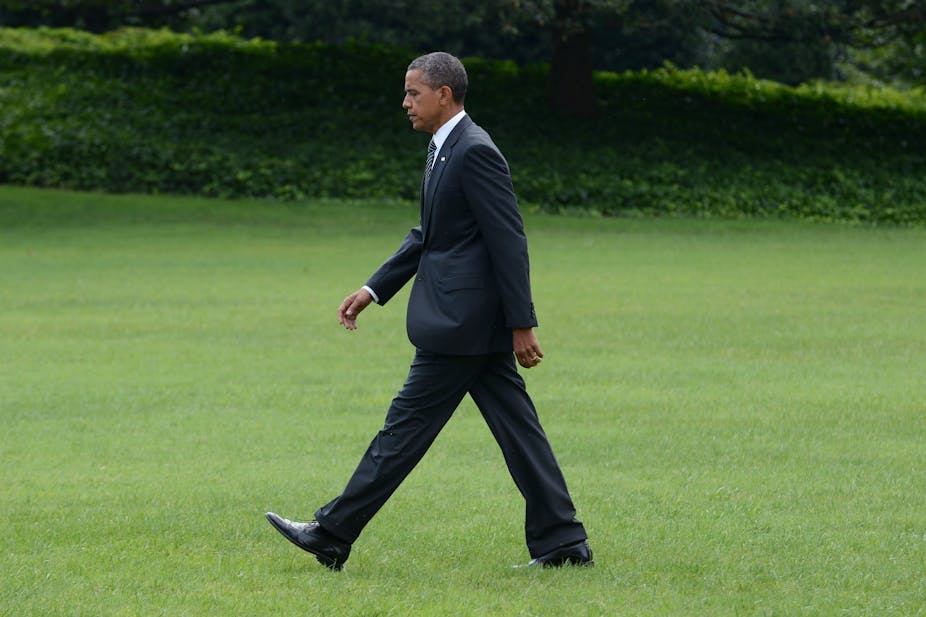On November 6, US voters will make a choice between two very different candidates with very different visions, policies and approaches. Well, that is the official version, at least.
The reality is rather different. Barack Obama, Mitt Romney and their respective parties, represent the two wings of capital, the 1% if you like. No matter who wins on November 6, Wall Street, not Main Street, will still be firmly in control. Big business not ordinary people will continue to run the government.
Almost half of all Congressmen and women are millionaires. In 2010 the average net worth of Senators was estimated at US$2.63 million. This wealth and their high salaries divorces them from the life experience of poverty and unemployment and of falling living standards that many Americans have or are experiencing. To some extent their wealth even shields them from the racism, sexism and homophobia common to much of US society.
The rise of neoliberalism as an ideology of wealth shifting from the poor and working class to the rich was a response to falling profit rates across much of the developed world at the end of long boom in the late 1960s and early 1970s.
Just as in Australia, the two major parties of capital in the US adopted the prescriptions and remedies of neoliberalism: attacking working class wages and living standards, cutting government spending on social services, privatising public goods, cutting taxes on the rich and capital and using the state to suppress unions and union activity.
After almost 30 years of this unrelenting one-sided class war by the 1%, Barack Obama in 2008 inspired millions with talk of change.
Four years later the reality denies the soaring rhetoric. Most working class Americans are worse off than when he came to power and much of his enthusiastic base deserted him as he continued the Bush economic and geopolitical agenda.
In 2008 it was a case of voting for the charlatan of capital whose role in practice of ruling for the rich has been revealed.
Oh, cry the Democrats, at least he is not as bad as Romney.
This lesser evil argument has a few problems. Why vote for evil in the first place? Second, in power the Democrats might end up being just as bad if not worse than the Republicans.
Certainly, Obama has proven powerless in the face of the worst economic crisis in US history since the Great Depression. This is because the economic problems are systemic and neither Obama nor Romney has any intention of attacking the system that produces recession and depressions. Bandaids don’t cure cancer.
Lyndon Johnson won the 1964 election in part because he was the lesser evil compared to Barry Goldwater. The two million Vietnamese killed as a result of Johnson’s escalation of the war in Vietnam might question, if they could, this lesser evil strategy.
Internationally, Obama unleashed more drone attacks in one year than Bush did in eight years.
None of this is to argue that voting for Romney would be a step forward. Romney offers a shit sandwich. Obama asks if you want fries with it.
The two candidates are part of the plutocracy governing America, and that the alternative is to build struggles to force them to adopt pro-people not pro-profit policies. Out of that might arise a challenge to both the parties of US capitalism, one that expresses the anger and frustration many Americans have with policies as usual and ultimately challenges the rule of capital.
There is something else in all of this. US politics, like Australian politics, has swung far to the Right over the last few decades.
Danny Katch puts it this way in his forthcoming book America’s Got Democracy! The Making of the World’s Longest Running Reality Show, in what he calls the “Two Party Shuffle”:
Hey Tea Party, looking for a fight? Step from your Right to your really far Right! Now reach for your partner, the GOP. Pull them a step toward you on three! Okay Democrats, now it’s your turn. Slide to where the Republicans were! Now grab on to your liberal base. Yank them a step to a “realistic” place!
Yet as the Occupy movement shows, and the massive but passive support it got confirms, many Americans in reality reject the remedies and prescriptions of the politicians of the 1%. They want better and more accessible health care and education, action on climate change, even gay marriage and abortion rights.

For the last week 25,000 teachers have been on strike in Chicago and 50,000 people demonstrated for them on Wednesday. The strike is against the wage cutting and privatisation plans of Obama’s former right hand man and now Mayor of Chicago, Rahm Emanuel. Mitt Romney came out against the teachers and in support of the Democratic Party’s attacks on teachers.
It didn’t take long for the posters of “Rahmney” to appear, making it clear that in the battle between workers and the elite over the future of education, the two parties of business are in fact on the same side: against teachers.
Even on health care the two parties accept the basic premise that a “free” market in private health care is the best way to look after the sick and unwell. Thus private health funds have been the main beneficiaries of Obamacare.
The US presidential election is a choice between two representatives of big business. The task is to fight the one percent and build an alternative. Occupy gave us a glimpse of the possibilities.
Winning the immediate fight and building that alternative, as Occupy and now the Chicago teachers’ strike shows, can only be done on the streets and in the workplaces, through demonstrations and strikes.

